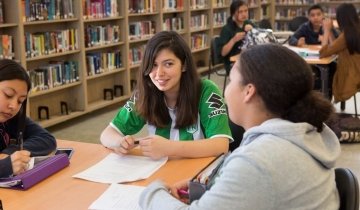The 2021 school year is marked by unprecedented controversies. Resistance to mask mandates and the idea of racism curriculum have led to protests, chaos and violence. The nationwide conflicts have even prompted the federal government to intervene.
The Trials and Tribulations of the New School Year…, a recent webinar hosted by USC Rossier Dean Pedro Noguera, aimed to provide guidance for educators forced to navigate a culture war in which they did not enlist.
Here are some key takeaways from the webinar’s panel of experts and practitioners.
Leaders Must Weigh Policy Trade-Offs
When it comes to determining pandemic policies in schools regarding mask mandates and remote learning, there is no perfect solution.
Policymakers should recognize that there is a trade-off between education and public health, suggested Neeraj Sood, Vice Dean of Research at USC Sol Price School of Public Policy and Director of the COVID Initiative at USC Schaeffer Center for Health Policy and Economics. Protecting children against COVID-19 is important, but it can potentially have negative effects on their mental health and student outcomes.
Critical Race Theory Is Woefully Misunderstood
Among school controversies in 2021, critical race theory is perhaps the most politically charged. Nationwide, school boards and legislators have banned the subject, despite the fact that few if any schools teach it.
As an expert on critical race theory, Shaun Harper, Founder and Executive Director of the USC Race and Equity Center, described opponents of the subject as terribly uninformed. “The attacks on critical race theory… [are] in response to the global conversation that was forced last summer following the murders of George Floyd and Breonna Taylor.”
The debate about critical race theory may actually be a distraction. Instead, it can be useful to help school leaders understand the liabilities of failing to teach young people about race, and how to get ahead of racial crises before they occur, said Harper.
“The attacks on critical race theory… [are] in response to the global conversation that was forced last summer following the murders of George Floyd and Breonna Taylor” –Shaun Harper, Director of the USC Race and Equity Center
Parents Support Racial Equity Curriculum, but Some Educators Lack Training
Citing a study by the National Center for Research on Education Access and Choice, Julie Marsh, Professor of Education, noted that the majority of parents surveyed want schools to “create curriculum to teach about racism bias, equity and inclusion.”
However, such curriculum requires careful planning. Many educators receive little to no formal training in racial equity. Instead, training should be comprehensive and continuous, said Harper.
Differentiation, or tailoring a curriculum to community and individual needs, would also be a valuable part of more educator training programs, added former superintendent Sandra Lyon, EdD ‘17. Programs should prepare educators to apply their knowledge and skills in a variety of settings, including diverse and high-poverty schools.
Educators Need More Support
Schools are at a “breaking point,” said Sood.
In addition to navigating the challenges of a pandemic, they are facing serious teacher shortages. And while students are undergoing a mental health crisis, educators also need help.
Communities should make sure that their “educators are being supported for their well-being to… help students with their well-being,” said Marsh. Universities and community-based organizations can play a role.
Communicating more facts doesn’t reduce polarization. –Neeraj Sood, Vice Dean of Research, USC Sol Price School of Public Policy
Reduce Polarization Through Community Engagement
Communicating more facts doesn’t reduce polarization, noted Sood. Rather, a good way to build trust between people is through social interaction. When you trust someone, you’re more willing to listen to them, he continued.
For schools, this could mean holding more informal forums with families, or creating opportunities outside of school board meetings to engage with the community.
A New Vision for Schools
“The Trials and Tribulations of the New School Year…” is part of the USC Rossier initiative A New Vision for Schools (and Why Now Is the Time).
View other webinars from this series:



